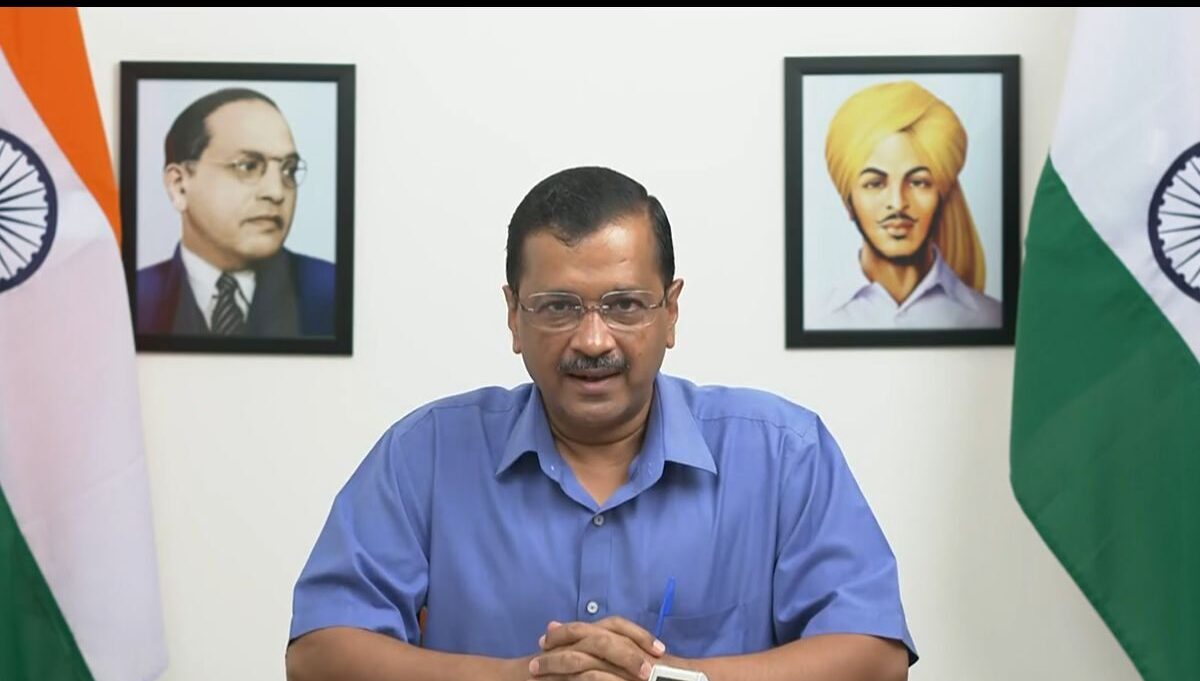Delhi Chief Minister Arvind Kejriwal on Friday announced a 15-point Winter Action Plan while calling for a coordinated effort with neighbouring states and the Centre to curb air pollution in the national capital.
Kejriwal announced that teams would be set up to check garbage burning, dust and vehicular emission to curb air pollution in the national capital.
The chief minister said certain steps by the government, including the introduction of an electric vehicle policy in 2020, 24-hour electricity supply, closure of thermal power plants, curbs on dust pollution and induction of electric and CNG buses had reduced pollution levels.
“There has been a significant improvement in air pollution of Delhi in 2021-22 as compared to 2017-18 as per the central government’s National Clean Air Program (NCAP) report. The PM10 level has reduced by 18.6 per cent in the past four years,” he said during a digital briefing.
He added that the city government received significant help from the Centre, which built peripheral express highways to ensure that a large number of trucks no longer needed to enter Delhi to travel further.
Stressing on the need for a coordinated effort between states, he said the city government would work with the Centre, Commission for Air Quality Management (CAQM) and other states to check the pollution problem.
“I request all the neighbouring states to ensure that all those vehicles which enter Delhi are either CNG or electric vehicles. They can also stop industrial units from using fuel, which causes pollution, and direct them to use PNG (piped natural gas),” he said.
Kejriwal said the states could order brick factories to implement zig-zag techniques in manufacturing, prohibit diesel generators and added that “at least the NCR should have 24 hour supply of electricity”.
Announcing the Winter Action Plan, he said the government would spray bio decomposer for free to tackle stubble, while the coverage area would be increased to 5,000 acres this year from 4,000 acres.
The government’s anti-dust campaign will begin from October 6 with 586 teams regularly inspecting construction sites to ensure compliance.
The government has already announced a ban on production, storage, distribution and purchase of firecrackers and 210 teams have been formed for surveillance.
“Construction sites above 500 square metres need to mandatorily register themselves on the government’s Construction and Demolition (C&D) portal. It will be mandatory for construction sites above 5,000 sq mtrs to have anti-smog guns with 233 smog guns to be installed across Delhi,” he said.
Sharing further details of the plan, Kejriwal said the government would deploy 80 road sweeping and 521 water sprinkling machines to curb pollution emerging from roads while 150 mobile anti-smog guns would go around the capital.
“Delhi has 203 busy roads with heavy traffic and we have prepared alternative routes to divert traffic from such roads. We have formed 611 teams to penalise open-burning of garbage,” he shared.
The government has formed 380 teams to ensure stricter inspection of Pollution Under Control (PUC) certificates of diesel vehicles older than 10 years and petrol vehicles older than 15 years.
“Although all the registered industrial units have switched to PNG, if there is any industrial unit which is using other pollution-causing fuels, they will be under the radar of 33 specialised teams which will ensure that they only use PNG,” he added.
Throwing light on the research carried out by the government, he said that a real-time source apportionment study was carried out in collaboration with IIT-Kanpur to know the amount of pollution and its source at any given point of time.
“Samples of air can be taken to identify the source of pollution, if it is from vehicles, stubble burning, or industry. We have established a super site on Rouse Avenue for this purpose and deployed several mobile vans equipped with various instruments. We are expecting to receive the data from October 20. There will not only be source apportionment but source forecasting as well,” he added.
Urging people to come forward and become a Paryavaran Mitra, he said that over 3,500 volunteers have already registered for it.
“They will raise awareness among people of Delhi regarding environment protection. You can give a miss call on 8448441758 to become a Paryavaran Mitra,” he added.
The government is also creating an E-waste Park for pollution-causing electronic waste.
“The size of the park is 20 acres and it will be located in Holambi Kalan. Once inaugurated, we will collect all the e-waste of Delhi to be taken to this park and processed scientifically,” he said.
He said the government had a target of planting 42 lakh saplings to increase the green cover of Delhi.
“We have already planted 33 lakh saplings in the first phase and we will plant the remaining nine lakh saplings in the second phase, which starts on October 15. The government is creating a green war room for even more efficient monitoring and it will be operational from October 3,” he said.
The green room will comprise nine scientific experts as members to analyse data and develop future course of action, he said.
Talking about the Green Delhi app launched two years ago, he said they had so far received 53 lakh complaints on it and resolved over 90 per cent of them.
The government has also marked 13 hotspots across Delhi which are under strict surveillance and will implement various solutions to control pollution in those hotspots.
Kejriwal said the government will implement a modified GRAP (Graded Response Action Plan) which forecast deterioration in air quality three days prior, he said, adding that they would run it in a similar manner like last year.
(With PTI inputs)
For more stories that cover the ongoings of Delhi NCR, follow us on:
Instagram: instagram.com/thepatriot_in/
Twitter: twitter.com/Patriot_Delhi
Facebook: facebook.com/Thepatriotnewsindia





